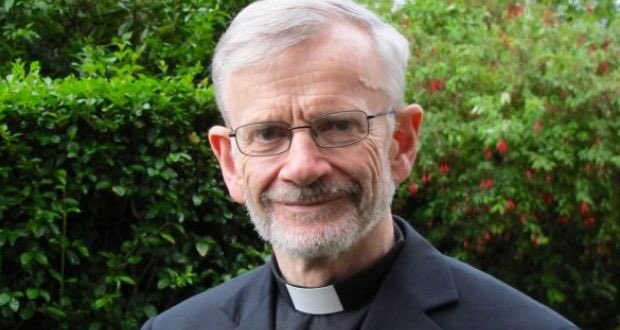
By Ann Marie Foley - 30 January, 2020

Bishop Alan McGuckian
Bishop Alan McGuckian, SJ, has urged Irish voters to keep social justice issues to the fore and seek to advance the common good when meeting candidates and voting in Election 2020.
He stated that any future government must prioritise the common good. “It must also be steadfast in its commitment to ensuring the best outcome from Brexit for the whole island and remain committed to peace in Northern Ireland to developing and maintaining positive relationships with our neighbours in the UK and Europe,” he stated.
Bishop McGuckian, chairman of the Council for Justice and Peace of the Irish Catholic Bishops’ Conference, published a statement ahead of the election, urging people to exercise their democratic right to vote and to influence the make-up of the next government of Ireland.
“While the Catholic Church does not support or align itself with any political party, the issues of justice and peace are important issues facing our society at this time which all politicians seeking election should aim to address,” he stated.
He highlighted the need to provide more housing and address homelessness and called for the right to housing to be inserted into the Constitution of Ireland.
He said that action should be prioritised in caring for the environment, as this issue not only affects us nationally but has global consequences, especially for those in the developing world. However, he cautioned that vulnerable sectors such as agriculture and those in poverty should not be disadvantaged by new climate-related policies.
With regard to society, he urged the provision of the most humane accommodation for asylum seekers and refugees and that local communities be consulted when new centres are being set up. He called for intolerant language to be removed from political discourse.
He also asked that labour regulations ensure that workers, especially the young, are treated equitably by employers and that they are not disadvantaged by precarious work.
“I am concerned about the growing impact of so-called precarious work on young people and families. This often disproportionately impacts on young people who are socially or educationally disadvantaged and are vulnerable to exploitation by employers because of the limited options available to them,” he stated.
He added that such work can involve bogus self-employment or extremely short-term contracts and has “negative consequences for the individual’s progress and development. It impacts on their financial security and their ability to buy a home or start a family. It also influences their sense of accomplishment, purpose and value.”
 Separately this week, Focus Ireland has published a blog that states that young people are at particular risk during a housing crisis.
Separately this week, Focus Ireland has published a blog that states that young people are at particular risk during a housing crisis.
Dillon Nolan, who wrote the blog, stated that: “Young people are six times more likely to experience discrimination by private landlords, and have to resort to couch surfing, staying with friends, and constant insecure housing just to survive. Yet these young people are not included in government official homeless numbers; they are hidden.”
He added that young people who grow up in care are especially vulnerable, as without a family network they cannot go home, and there are gaps in State aftercare. He was in the care system himself and was deemed to be an adult when he became 18, even though he was still in 6th year in school and just a few months away from sitting his Leaving Certificate. Luckily, he was able to enter Focus Ireland accommodation.
He cautioned that his experience is not unique, and highlighted EPIC (Empowering Young People in Care) statistics, which show that 12 per cent of all advocacy cases involved a young person who was homeless. This was an increase of 62 per cent since 2016.
“We need to be angry that the number of 18–24-year-olds who are homeless has nearly doubled in 5 years. The role of the State is to be that corporate parent for all children in State care. So what parent would abandon their child when they turn 18?”
He highlighted that Focus Ireland has called for the next government to urgently put in place a strategy to tackle and prevent youth homelessness and guarantee that all young people leaving State care have a secure home.